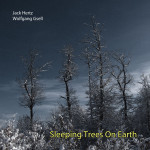Does It Sound Like I’m on Track?
In honor of the U.S. nationwide debut of Harry Potter and the Deathly Hallows: Part 2, I would like to dedicate this post to that ever-necessitous piece of attached merchandise; the Soundtrack.
The Harry Potter film soundtracks have certainly helped to boost the already breathtaking amounts of gross profit earned in the name of the total franchise –books, clothing / accessories, toys, (video) games as well as the films. For a series that has thrived on events that stretch well past the fabric of reality, with action and suspense of fanatical proportions, it makes sense that the accompanying instrumental scores for each film bring arrangements, sounds, phrasing and themes that can pull at the imagination almost entirely without provocation.
Though some pieces have remained constant and unchanged throughout the films, mostly of the set or character identifying variety, such as the recognized ‘main theme’, formally known as “Hedwig’s Theme” (Who’s Hedwig? Read HERE.) The eight total Harry Potter films have seen their fair share of prestigious composers wield the pencil and manuscript for the fan revered series. Acting and image have been enhanced through music by the likes of John Williams, Patrick Doyle, Nicholas Hooper and Alexandre Desplat for both parts of the “Deathly Hallows” saga.
Aside from the fact that Potter has amassed one of the biggest followings Britain has ever seen, a good soundtrack has more value than just the attachment to whatever it’s enhancing. Not only does a strong score and movie combination mutually benefit from one another in connecting with an audience (hopefully for the long term,) but in thinking of the type of almost blind exposure the general public is taking in when buying these albums, I’m sure no passionate composer would be sad.
Adding to a film aside, soundtracks for films like Harry Potter are usually 98% if not 100% instrumental in nature. This usually equates to an album made up of elaborate orchestral arrangements, catered to whatever style is used by the designated composer. Regardless of the latter, that’s no radio-edited pop song. Plain and straightforward, through the association with beloved stories and characters, the pathway to having average listeners draw on orchestral music to inspire or perpetuate their own emotions suddenly sounds much less daunting. Symphonic works can be an acquired taste for many people, and many people never do acquire that taste; therefore never turning to it for comfort or motivation. If a person can manage to work past that initial hesitancy though, it only means ongoing promise for the music industry that people may develop a liking toward a composer independent of his pop-culture affiliations. Nevertheless, at those beginning stages wherein you have crowds of young kids and young adults racing to download or buy Harry Potter OSTs, there isn’t a fan among those consumers that is stopping to point and laugh or stare, asking “why do you listen to that lame classical music?” For now, popular movie franchises which require ornate instrumental scores are making classical works cool. As two dimensional as that may come across, as I said, no arts person or working composer would look to stop the progress, much less wish it back in the other direction.
Bravo Mr. Desplat, your latest work in livening up the action-packed finale in both the high and low moments, is definitely going to be buzzing in people’s ears for a long time to come. If you’re reading this I’m sure you’re at least some degree of a Harry Potter fan, so I’m also sure you’ve seen the Deathly Hallows Trailers too many times to count. The high definition aside, why not give it one more play, and experience for yourself, how the trailer differs when you make the music your main focus and not the dialogue? You’d be surprised at the musical nuances that could ‘suddenly appear’ if you concentrate…




Leave a Reply